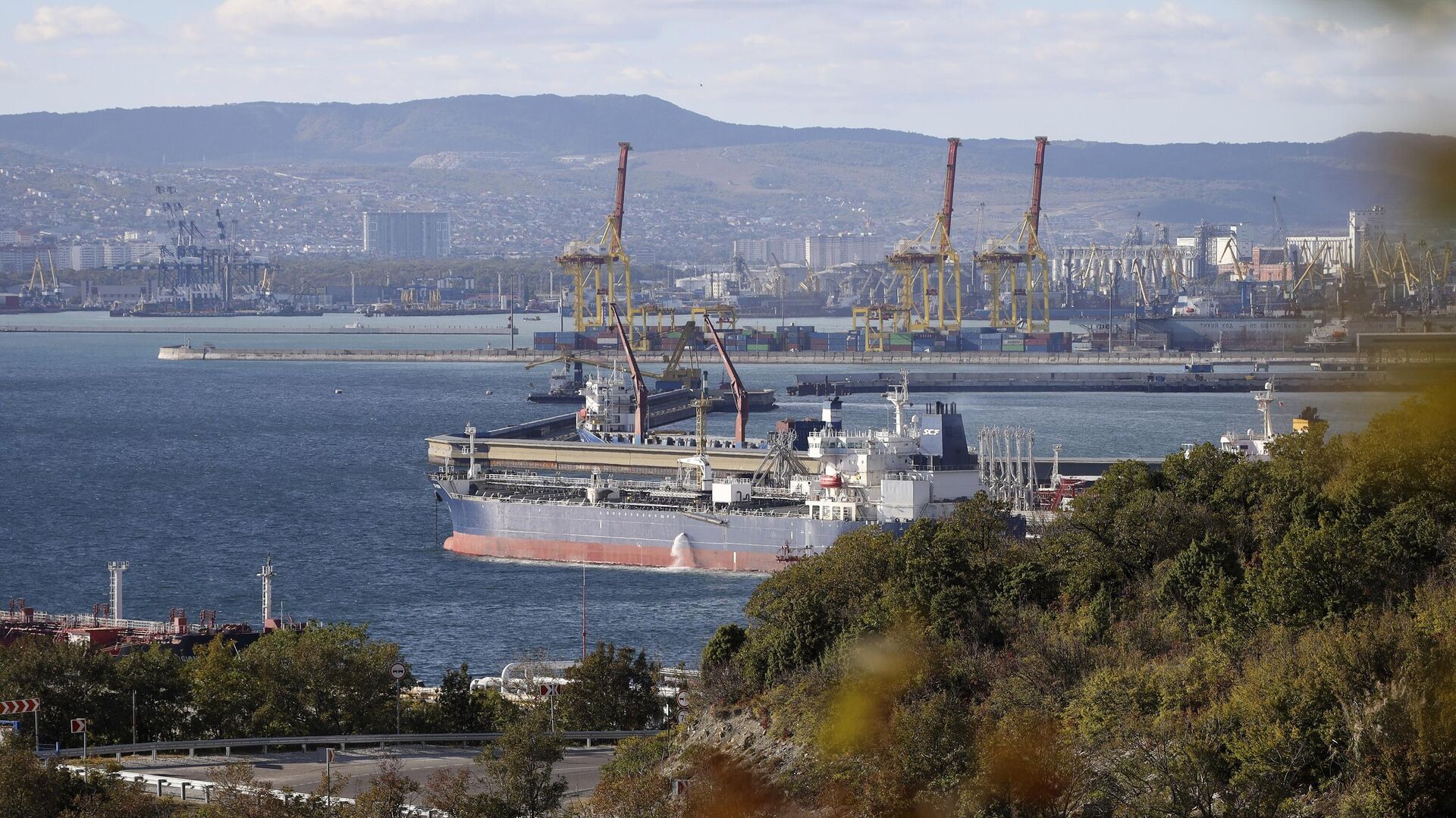https://sputnikglobe.com/20221206/russian-oil-will-always-be-in-demand-despite-changes-in-logistic-chains-russian-deputy-pm-novak-1105093742.html
Russian Oil Will Always Be in Demand, Despite Changes in Logistic Chains: Russian Deputy PM Novak
Russian Oil Will Always Be in Demand, Despite Changes in Logistic Chains: Russian Deputy PM Novak
Sputnik International
MOSCOW (Sputnik) - Russian oil has been and will be in demand, while logistics chains will change, there is no tragedy in this, Russian Deputy Prime Minister... 06.12.2022, Sputnik International
2022-12-06T09:42+0000
2022-12-06T09:42+0000
2022-12-19T13:53+0000
russia
russia
oil
production
prices
https://cdn1.img.sputnikglobe.com/img/07e6/0c/06/1105093537_0:161:3071:1888_1920x0_80_0_0_3c1bffc89ccc91eaa2b8f025baec507a.jpg
"Russian oil is in demand on global markets, oil will find its buyers. Russia is the world's largest supplier of oil to global energy markets... Russian oil has always been in demand and will be in demand. Yes, the logistics mechanisms and chains will change now. Nevertheless, we do not see any tragedy in this," Novak told reporters.Russia, against the background of an uncertain situation, may reduce oil production, but not by much, Novak added.The introduction of a price cap on Russian oil can only lead to a decrease in global investments in the industry, which in turn will lead to an increase in prices, the official added.Last week, the European Union reached an agreement on setting a price cap on Russian oil at $60 per barrel, which went into effect on Monday. The price cap will be reviewed every two months to remain at 5% below International Energy Agency benchmark. The Group of Seven (G7) nations and Australia also agreed on the same day to set a $60 price cap on Russian oil.Kremlin spokesman Dmitry Peskov said that Moscow was preparing a response to the decision by the US-led collective West to introduce a price cap on Russian oil and will never recognize the measure.
russia
Sputnik International
feedback@sputniknews.com
+74956456601
MIA „Rossiya Segodnya“
2022
Sputnik International
feedback@sputniknews.com
+74956456601
MIA „Rossiya Segodnya“
News
en_EN
Sputnik International
feedback@sputniknews.com
+74956456601
MIA „Rossiya Segodnya“
Sputnik International
feedback@sputniknews.com
+74956456601
MIA „Rossiya Segodnya“
russia, oil, demand, logistic chains, deputy pm novak
russia, oil, demand, logistic chains, deputy pm novak
Russian Oil Will Always Be in Demand, Despite Changes in Logistic Chains: Russian Deputy PM Novak
09:42 GMT 06.12.2022 (Updated: 13:53 GMT 19.12.2022) MOSCOW (Sputnik) - Russian oil has been and will be in demand, while logistics chains will change, there is no tragedy in this, Russian Deputy Prime Minister Alexander Novak said on Tuesday.
"Russian oil is in demand on global markets, oil will find its buyers. Russia is the world's largest supplier of oil to global energy markets... Russian oil has always been in demand and will be in demand. Yes, the logistics mechanisms and chains will change now. Nevertheless, we do not see any tragedy in this," Novak told reporters.
Russia, against the background of an uncertain situation, may reduce oil production, but not by much, Novak added.
"We do not exclude that, if necessary, we may have situations related to periods of oil production decline, since this situation is uncertain. There is a lot of volatility today. I don't think it will be any large volumes, nevertheless we do not rule out this possibility," Novak told reporters, adding that Russia is cooperating with smaller traders when trading oil, and is using new supply insurance schemes.
The introduction of a price cap on Russian oil can only lead to a decrease in global investments in the industry, which in turn will lead to an increase in prices, the official added.
"We do not accept those mechanisms that are adopted as price restrictions in an artificial way, in a non-market way, price determination by consumer countries. They make the same mistake, introducing price caps in non-market ways. This can only lead to a global decline in investment and a shortage of appropriate energy resources in the future. This, in turn, will lead to an even greater increase in prices," Novak said.
Last week, the European Union reached an agreement on setting a price cap on Russian oil at $60 per barrel, which went into effect on Monday. The price cap will be reviewed every two months to remain at 5% below International Energy Agency benchmark. The Group of Seven (G7) nations and Australia also agreed on the same day to set a $60 price cap on Russian oil.
Kremlin spokesman Dmitry Peskov said that
Moscow was preparing a response to the decision by the US-led collective West to introduce a price cap on Russian oil and will never recognize the measure.


